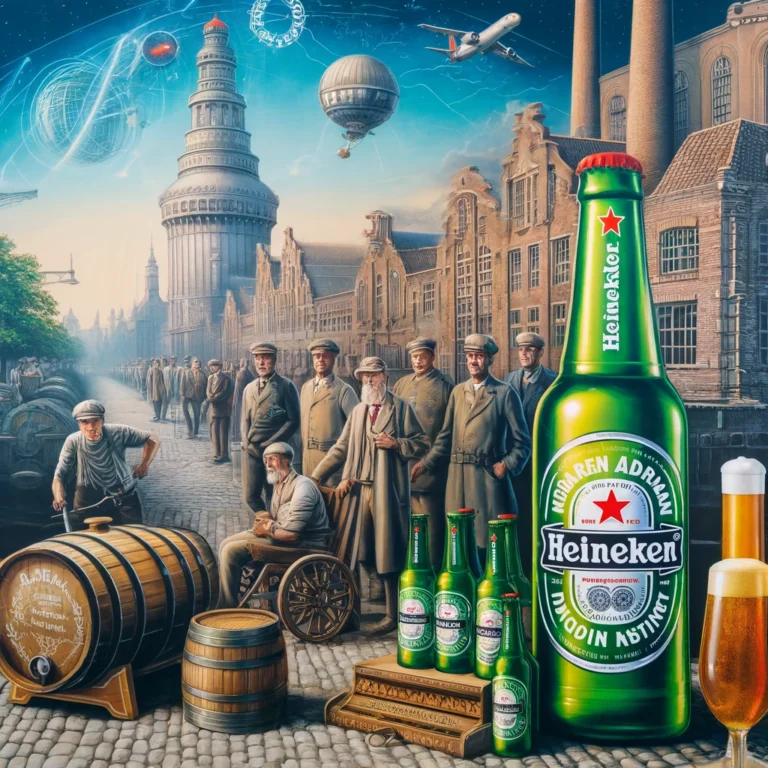Founding and Early Years
Heineken traces its roots back to 1864 in Amsterdam, Netherlands, when Gerard Adriaan Heineken purchased a small brewery called “De Hooiberg” (The Haystack). Gerard Heineken was an ambitious young entrepreneur who envisioned producing superior-quality beer using innovative brewing techniques. Under his leadership, the brewery experienced significant growth and success, leading to the establishment of a larger brewery in Amsterdam in 1873. This new facility became the foundation for the Heineken brand we know today.
Expansion and Innovation
Heineken quickly embraced technological advancements and implemented innovative brewing methods, such as the use of bottom-fermenting yeast and temperature-controlled fermentation. These techniques resulted in a cleaner and more consistent beer. By the late 19th century, Heineken began exporting its beer to neighboring countries like Belgium and France, marking the start of its international expansion.
Global Reach
Heineken’s expansion beyond Dutch borders gained momentum in the 20th century. In 1933, Heineken became the first beer imported into the United States following the repeal of Prohibition. The company’s global presence continued to grow through strategic acquisitions and partnerships, such as the acquisition of Amstel in 1968 and the expansion into Africa in the late 1940s.
The Freddy Heineken Era
Alfred “Freddy” Heineken, Gerard Heineken’s grandson, played a crucial role in the company’s modernization and global branding. Freddy joined the family business in 1941 and later became known for his innovative marketing strategies. He established Heineken’s advertising department and introduced the iconic red star logo and the “smiling e” in the branded text. Under his leadership, Heineken focused on acquiring other brewing companies and expanding its global footprint.
Modern Era and Sustainability
Today, Heineken operates in over 170 countries and owns a diverse portfolio of beer brands. The company is committed to sustainability and corporate social responsibility, implementing initiatives to reduce its environmental impact, including water and energy conservation, waste management, and carbon footprint reduction. Heineken also promotes responsible drinking through various programs and campaigns.
Heineken’s success is a testament to its unwavering commitment to quality, innovation, and strong branding. From a modest brewery in Amsterdam to a global beer giant, Heineken has maintained its reputation for producing high-quality beers while staying true to its core values.

